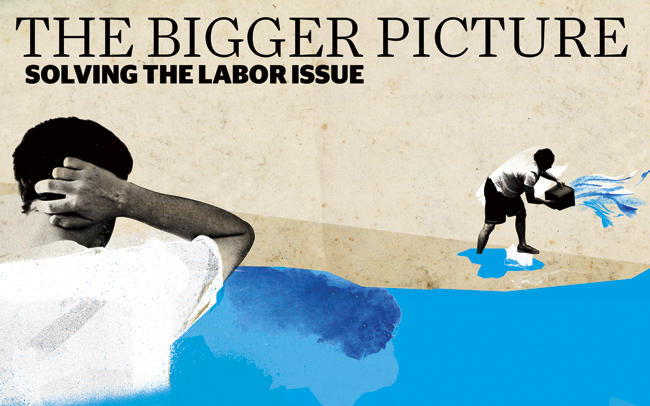One policy area that could see cooperation between a DPJ-led government and the JCP (and the SDPJ) is the treatment of non-regular workers (mentioned here).
The JCP's position on dispatch workers and other non-regular workers is clear: the party wants to ban the employment of temporary workers in manufacturing work, making an exception only for "specialized work." The DPJ's position is a bit more vague, as the party has called for a fundamental revision of the Temporary Staffing Services Law, more support for jobseekers, and a higher minimum wage, but it is unclear how far the party will go in limiting a practice that Naoto Kan argued has contributed to a decline in Japan's international competitiveness.
I'm not sure either party has the answer to the problem of non-regular employees. It is a problem — the latest economic and fiscal white paper not surprisingly concluded that gap between regular and non-regular employees is growing — but banning or heavily restricting the use of non-regular workers is no more than a temporary fix, a foolish attempt to restore Japanese capitalism to the way things once were, with companies bearing the burden of providing for the welfare of their workers. But arguably there is no going back to how things once were. The JCP seems to think that since Japanese companies are sitting on hordes of cash, the power of law can do what market incentives have failed to do. As Nobuo Ikeda suggests, if the government were to ban the employment of non-regular workers, companies would simply lay them off, raising Japan's unemployment rate to twenty-five percent or so. Ikeda criticizes the DPJ for its opportunism and crass populism, more befitting of a "perpetual opposition party" than an incipient government party.
I cannot disagree with his conclusion. The emergence of a underclass consigned to non-regular employment over the past decade was perhaps unavoidable: the problem is that all too little has been done by the LDP-Komeito coalition to not only provide a national safety net, extending full social protection to non-regular employees, but also reforming the education system and labor markets to ensure that failing to secure regular employment upon finishing school does not consign a young person to a lifetime of non-regular employment. Shinzo Abe spoke of a society in which people could "challenge again and again," but of course his heart wasn't really in reform — there were more important pieces of his Beautiful Japan than ensuring equality of opportunity.
But transforming the Japanese labor market will take more than legislation — decisions made by private actors, companies and universities especially, will play a critical role in shaping the future of the Japanese workforce. The government can help in providing adequate social protection so that young people take risk, but ultimately businesses will have to change how they hire and train young workers, universities and other educational institutions will have to provide a "portable" education to students, and ultimately young Japanese themselves will have to demand more freedom and flexibility in how they transition into the workforce. The DPJ ought to be more sensitive to the complex nature of the problem and resist the urge to declare that the problem can be fixed simply through legislation.
The non-regular worker problem is illustrative of the broader challenge facing a possible DPJ government. Many of the problems plaguing Japanese society are often multiple problems in one, requiring complex solutions that involve public and private sector actors and are often affected by the government's fiscal situation and broader macroeconomic conditions. The question is often phrased as whether the DPJ is up to the challenge of governing, but perhaps the more appropriate question is whether any political actor — politicians or bureaucrats — is capable of unwinding the Gordian knot of problems vexing Japanese society. And it seems to me one could pose the same question about most advanced industrial democracies. None of this is to say that a DPJ victory will be meaningless, but simply that it will be significant for reasons other than the DPJ's ability to unwind the knot. But that said, the DPJ will have to do better than using the blunt tool of a legislative ban.
Other posts by Tobias Harris:







